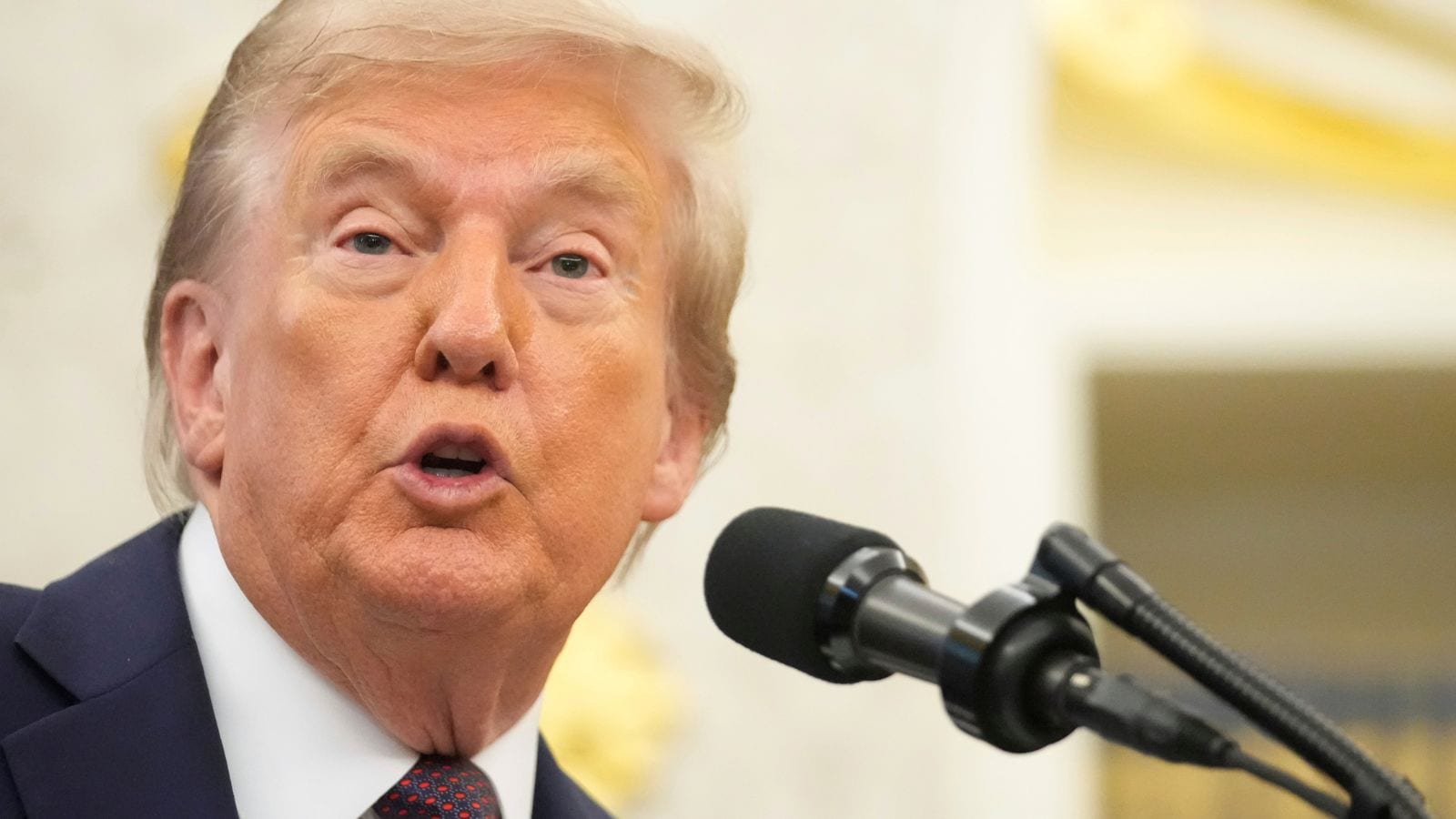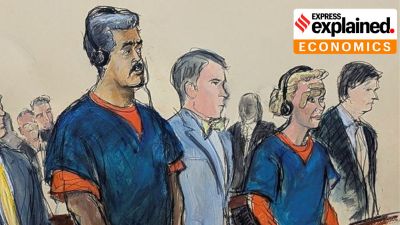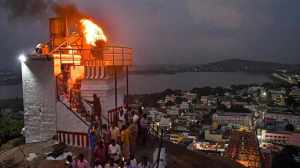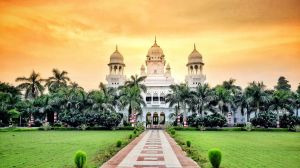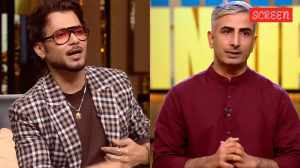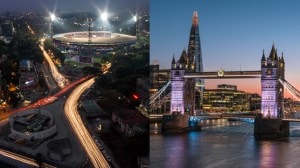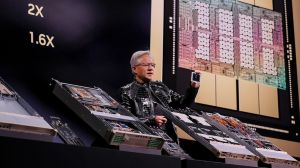THE chill between Delhi and Washington, precipitated by President Donald Trump’s 25% extra tariff framed as a “Russian penalty,” deepened Friday with both Trump and his Commerce Secretary making remarks that further seemed to roughen the road towards a quick resolution.
In his first remarks on the huddle between Prime Minister Narendra Modi, Russian President Vladimir Putin and Chinese President Xi Jinping at the summit of the Shanghai Cooperation Organisation leaders in Tianjin last weekend, Trump said it “looks like we have lost India and Russia to deepest, darkest China”.

This comes days after Trump’s efforts to persuade Putin to end the war in Ukraine — in the wake of their Alaska summit — have begun to stall.
Posting a photograph of Modi, Putin and Xi walking together, Trump took to Truth Social and said: “Looks like we have lost India and Russia to deepest, darkest China. May they have a long and prosperous future together!”
Almost as if on cue, US Commerce Secretary Howard Lutnick, whose team has been in negotiations with Delhi on the bilateral trade deal, dialled up the rhetoric, too.
Two days after Commerce Minister Piyush Goyal expressed hope that the US deal would be sealed by November, Lutnick, asked about Trump’s post and the souring of India-US relations, said: “They’re the vowel between Russia and China (in BRICS). If that’s who you want to be, go be it. But either support the dollar, support the United States of America, support your biggest client, who is the American consumer, or I guess you’re going to pay a 50% tariff. And let’s see how long this lasts.”
“So, I think yes, in a month or two months, I think India is going to be at the table, and they’re going to say they’re sorry, and they’re going to try to make a deal with Donald Trump,” Lutnick said in an interview with Bloomberg.
Story continues below this ad
“And it will be on Donald Trump’s desk how he wants to deal with (Narendra) Modi, and we leave that to him. That’s why he’s the President,” he said.
Lutnick said India needs to decide which side it wants to be on, adding that “we’re always willing to talk.”
“The Chinese sell to us. The Indians sell to us. They’re not going to be able to sell to each other,” he said. “We are the consumer of the world. People have to remember, it’s our $30-trillion economy that is the consumer of the world. So, eventually, they all have to come back to the customer, because we all know eventually the customer is always right.”
Asked about the US President’s post, Randhir Jaiswal, spokesperson for the Ministry of External Affairs, said, “No comment.”
Story continues below this ad
India has maintained that Modi travelled to Tianjin – his first visit to China in seven years – to attend the SCO summit where he also held bilateral meetings with Xi and Putin.
Delhi’s stand is that efforts to repair ties with China, which plummeted following Chinese incursions along the Line of Actual Control in eastern Ladakh in May 2020, began in October 2024 when Modi and Xi met on the sidelines of the BRICS summit in the Russian city of Kazan. Meeting in Tianjin again, they took stock of ties and decided to work towards normalisation of the bilateral relationship.
Modi and Putin also held talks in Tianjin, discussing the war in Ukraine and strengthening economic cooperation.
Although the Prime Minister’s visit to China had been scheduled earlier, photographs of Modi, Xi and Putin together invited global attention given that Trump had been targeting India for a month before the Tianjin gathering – on July 30, he announced the imposition of 25 per cent tariff on Indian goods, and followed it a week later by announcing an additional 25 per tariff over Indian purchase of Russian oil.
Story continues below this ad
In the Tianjin images, many in the West see an “anti-Western, anti-US” grouping being formed. Within the US, too, Trump’s moves against India have alarmed those who worked with previous administrations to build ties with Delhi, a partner to counter Beijing’s assertions in the Indo-Pacific region.
India has categorically rejected the US charge of funding the Russian war machine, and says it has bought oil to cushion its citizens from the inflationary impact of rising energy prices, even stabilising the global energy supply. It has called the imposition of tariffs as “unjustified”, pointing out that China and Europe have also been buying energy from Russia without being penalised.
Calling the Ukraine conflict as “Modi’s war”, Trump’s trade advisor Peter Navarro had accused India of being an “oil money laundromat for the Kremlin”. He also spoke of “strategic freeloading” by Delhi, saying it continues to buy Russian weapons while urging US defence firms to transfer sensitive military technologies and set up manufacturing plants in India.
“If India, the world’s largest democracy, wants to be treated like a strategic partner of the US, it needs to act like one,” Navarro had said.
Story continues below this ad
Responding to Navarro’s remarks, the MEA spokesperson said, “We have seen the inaccurate and misleading statements made by Mr Navarro, and obviously reject them.”
In spite of the verbal onslaught from the likes of Lutnick and Navarro, Delhi has maintained that negotiations for an Indo-US trade deal are underway. On Friday, Jaiswal said, “We continue to engage with the US side on trade issues.”
There has been no overt criticism of Washington’s stand even as Delhi has firmly stood its ground and refused to signal any major shift in its policy on Russian purchases.
Still, the strain in ties has put a question mark on the Quad summit to be hosted by India this year. Leaders of the US, Japan and Australia, the countries in the grouping with India, were to attend the meeting.
Story continues below this ad
Asked about the Quad summit, Jaiswal said, “The Quad is a valuable forum for discussion on shared interests in a number of areas. The Leaders’ Summit is scheduled through diplomatic consultations among the four partners.”
On the Ukraine conflict, India has engaged with Putin, Ukrainian President Volodymyr Zelenskyy, French President Emmanuel Macron and European Union leaders Ursula von der Leyen and Antonio Costa.
“As far as the conflict in Ukraine is concerned, we welcome all the recent efforts towards establishing peace in Ukraine. We hope that all parties will proceed ahead constructively. India supports an early end of the conflict and the establishment of an enduring peace,” Jaiswal said.

